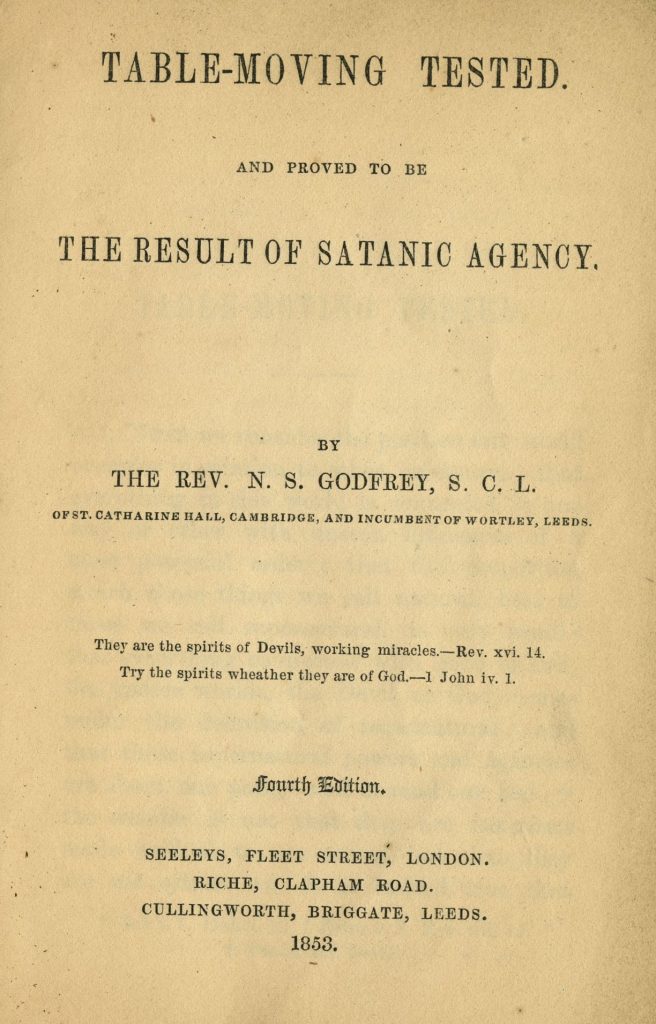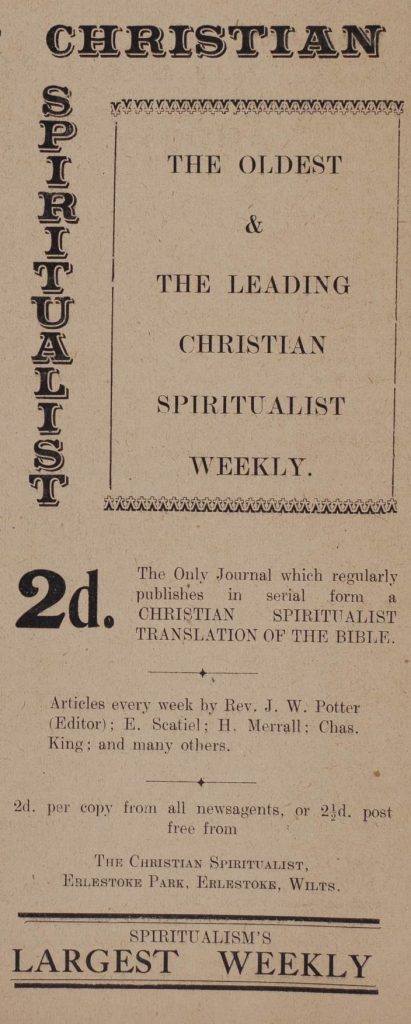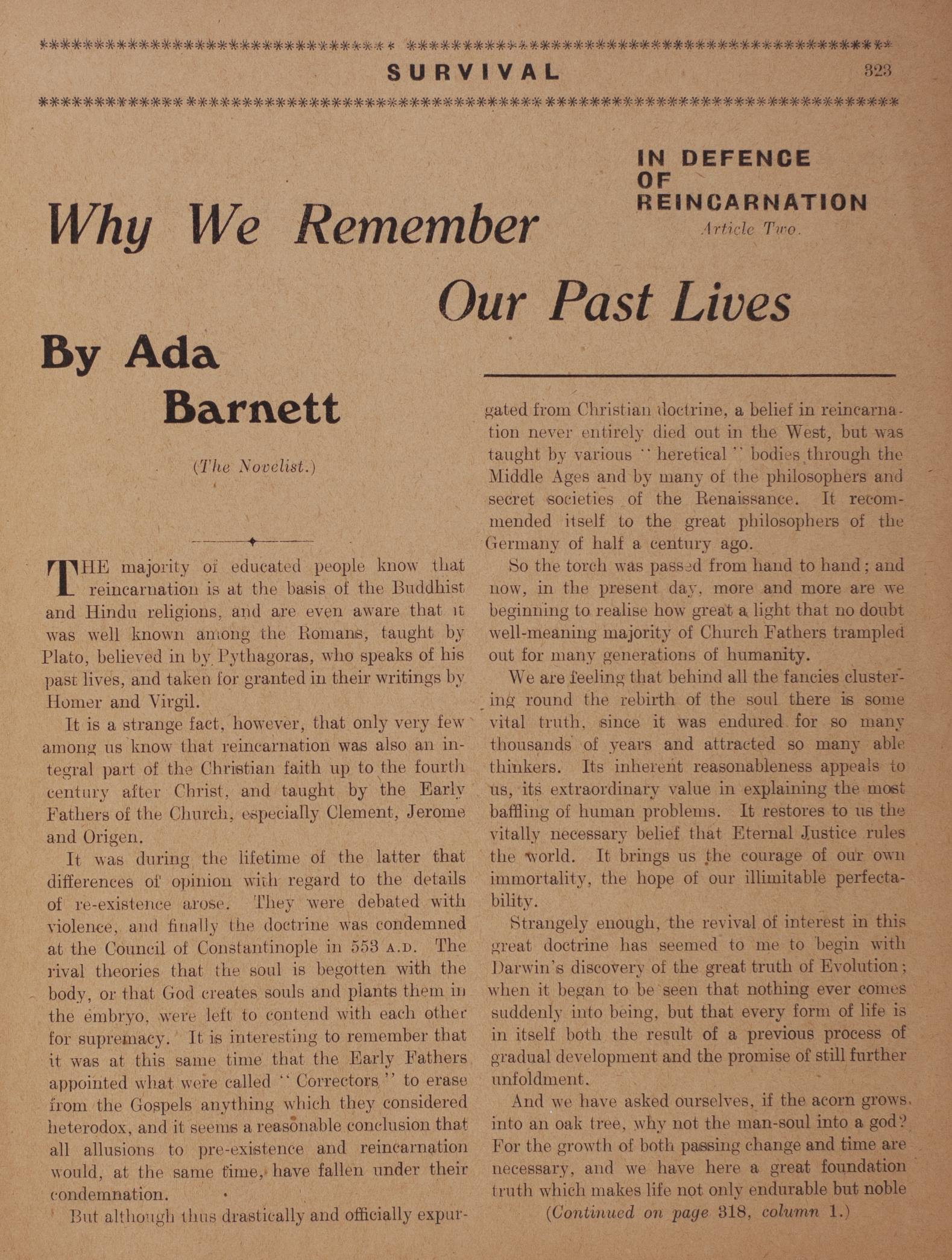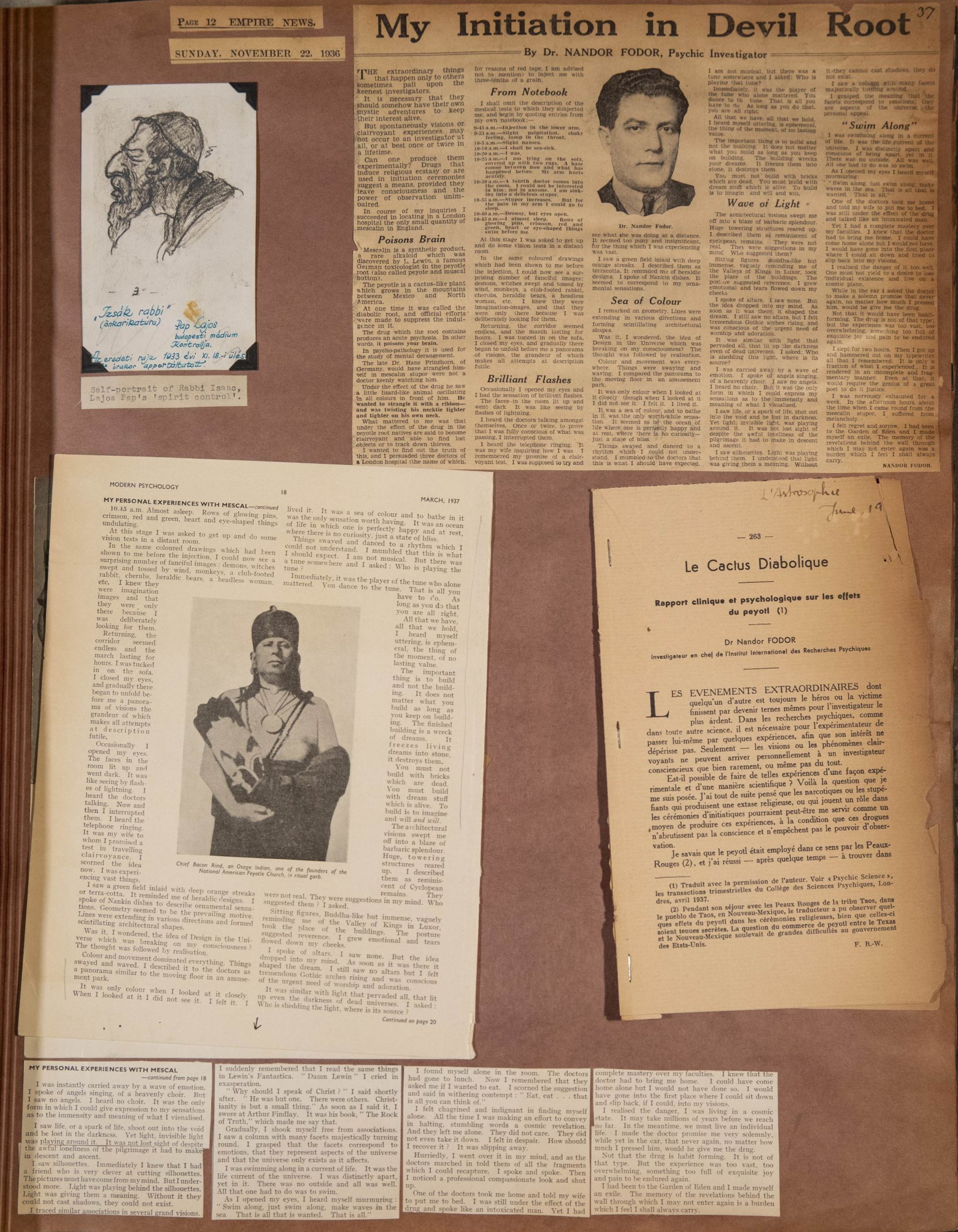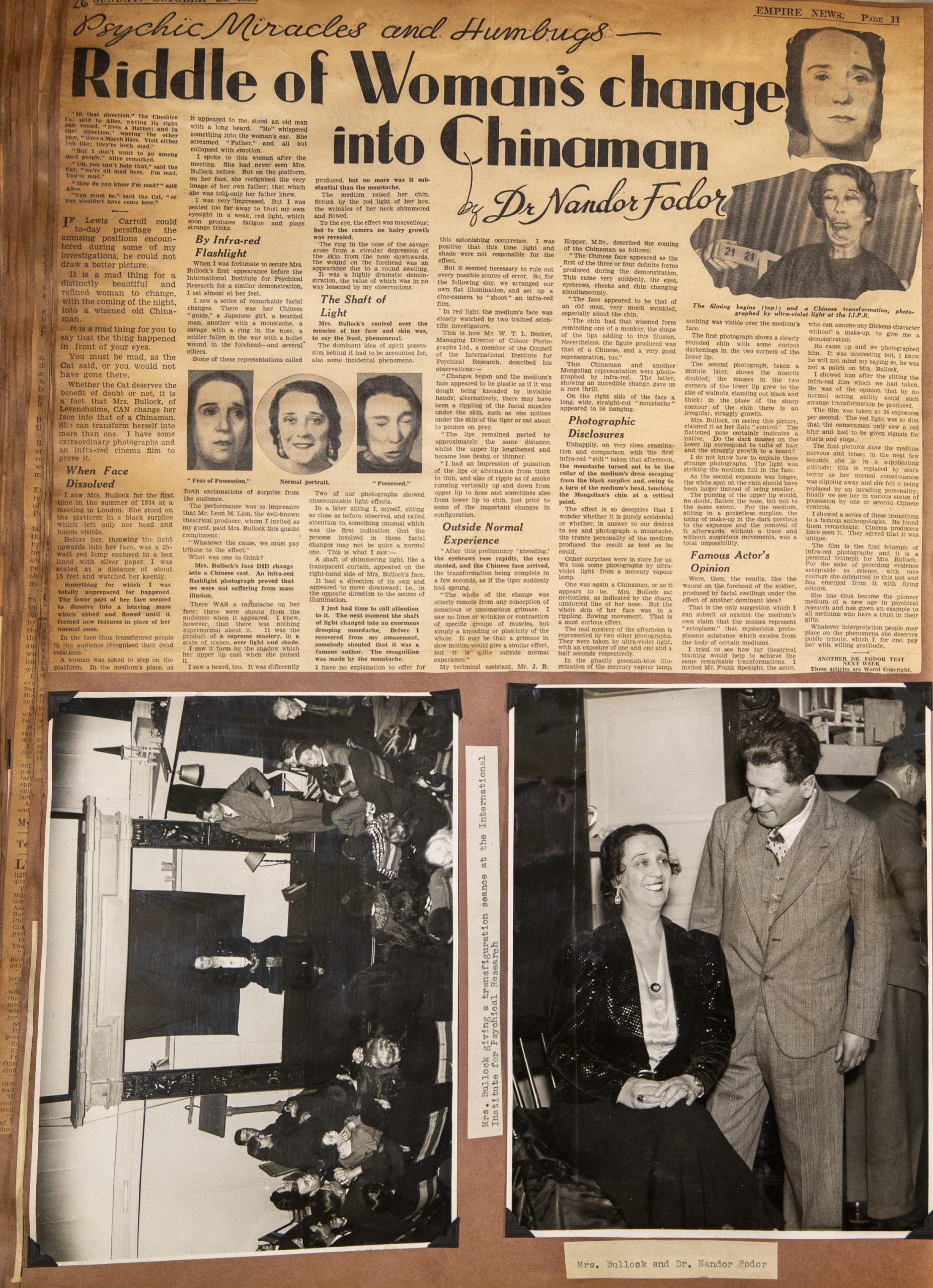While Spiritualism is understood as a religious movement, not all Spiritualists saw it as a religion in and of itself. Many prominent spiritualists were Christian, and incorporated Spiritualist beliefs and practices into their Christian faith. Other spiritualists may not have identified with any organized religion, or may not have considered their beliefs religious at all.
Click on the images to learn more about the individual items
Associations with Christianity
Western Spiritualism has long been associated with Christianity. In the 19th and 20th centuries, Spiritualist churches offered Christians an alternative to the more restrictive religious establishment. Spiritualism allowed for greater religious freedom and more progressive values, such as women’s equality, free love, and the abolition of slavery and war. However, it is important to recognize that not all Spiritualists shared these beliefs; the factor that united all Spiritualists was the belief in the existence of the spirit world, an afterlife separate from physical embodiment.
Exoticism and Cultural Appropriation
Spiritualism, as a religious and social movement, was influenced by Western perceptions of foreign and indigenous cultures. These perceptions were heavily exoticized, depicting non-Western peoples and cultures with harmful stereotypes and viewing them as objects to be fascinated by. A prominent example of this is in the nationalities and ethnicities of the controls of many mediums. It was very common for white mediums to have controls with stereotypical characteristics of exoticized cultures, including Chinese people and Indigenous Americans.
With exoticization came cultural appropriation, as Spiritualist beliefs often drew from non-Western cultures. In doing so, Spiritualists incorrectly depicted many cultures, particularly Indigenous cultures, as being a relic from the past. The Eurocentrism of the Spiritualist movement fails to properly attribute beliefs and practices to the peoples that have developed them centuries before and continue to follow them. While some Spiritualists are not likely to have done this intentionally with the motive to harm, the problematic Eurocentric attitudes within Spiritualism must be recognized and countered.
The following artifacts contain harmful depictions and stereotypes that were prominent at the time.
Click to read more

